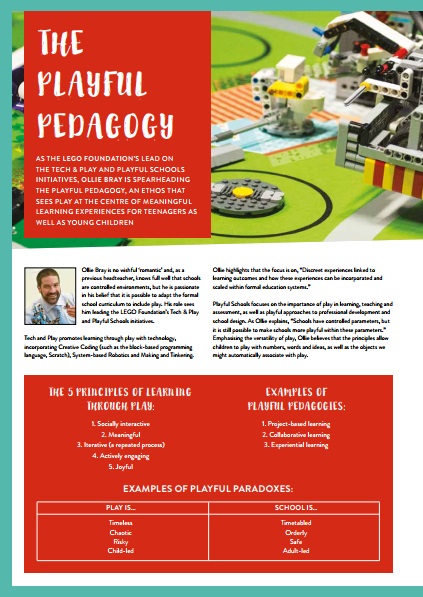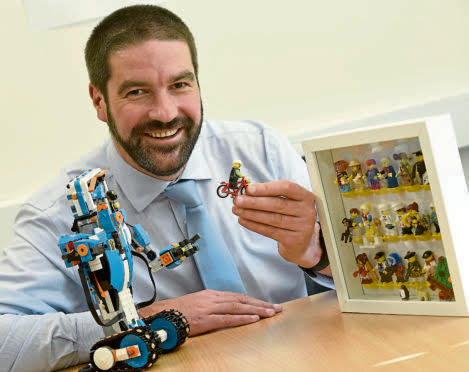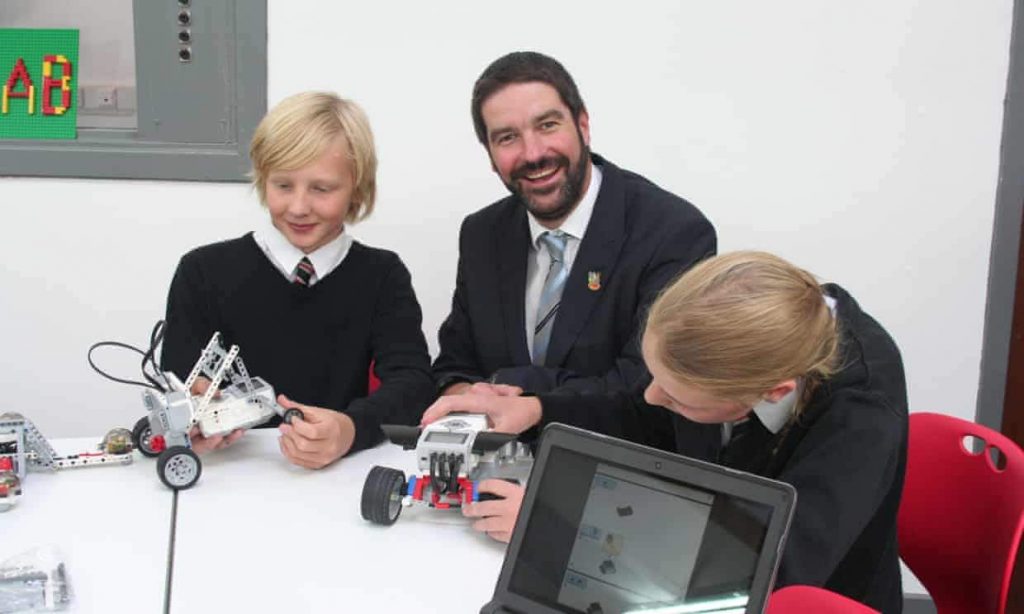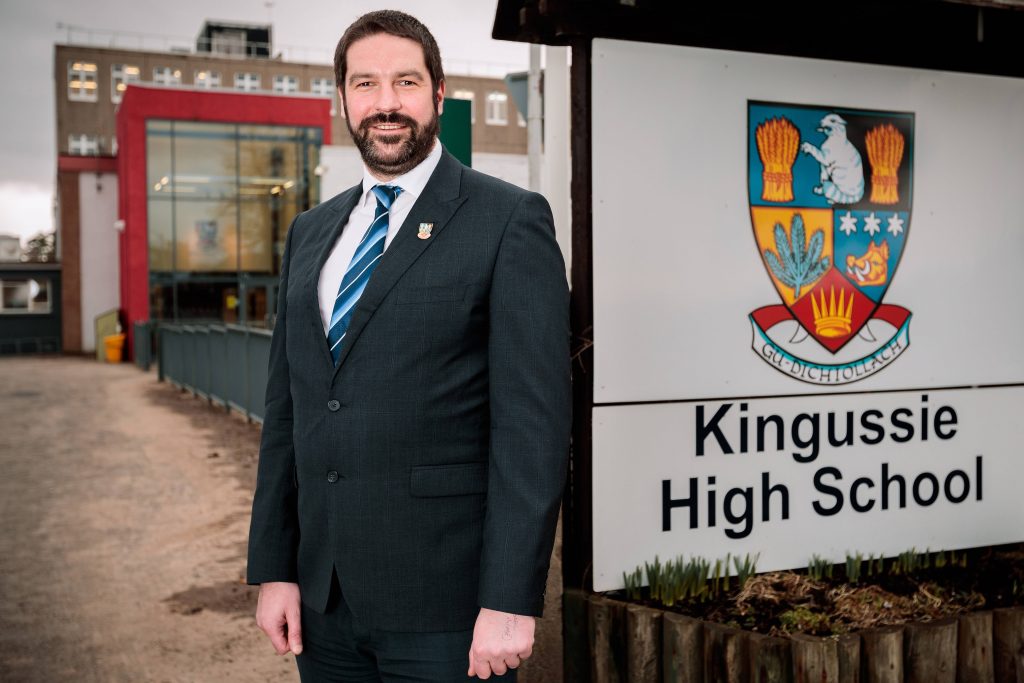The playful pedagogy
As the LEGO Foundation’s lead on the Tech & Play and Playful Schools initiatives, Ollie Bray is spearheading the playful pedagogy, an ethos that sees play at the centre of meaningful learning experiences for teenagers as well as young children
Ollie Bray is no wishful ‘romantic’ and, as a previous headteacher, knows full well that schools are controlled environments, but he is passionate in his belief that it is possible to adapt the formal school curriculum to include play. His role sees him leading the LEGO Foundation’s Tech & Play and Playful Schools initiatives. Tech and Play promotes learning through play with technology, incorporating Creative Coding (such as the block-based programming language, Scratch), System-based Robotics and Making and Tinkering. Ollie highlights that the focus is on, “Discreet experiences linked to learning outcomes and how these experiences can be incorporated and scaled within formal education systems.”
Playful Schools focuses on the importance of play in learning, teaching and assessment, as well as playful approaches to professional development and school design. As Ollie explains, “Schools have controlled parameters, but it is still possible to make schools more playful within these parameters.” Emphasising the versatility of play, Ollie believes that the principles allow children to play with numbers, words and ideas, as well as the objects we might automatically associate with play.
“Sometimes it’s okay to be less structured and to give children agency,” says Ollie. ‘Agency’ is a word he uses a lot because children need to have ownership of their play – of their learning – to be both motivated and successful. “Play is risky by nature,” he adds. In allowing students to take these risks, we allow them to define their own problems to solve, make their own decisions, fail or succeed on their own terms and, ultimately, learn and develop from meaningful learning experiences.
HELPING SCHOOLS TO EMBRACE THE PLAYFUL PEDAGOGY
One of Ollie’s key aims is to help teachers recognise quality playful learning experiences. Partnered with Project Zero at the Harvard School of Education, the LEGO Foundation is creating lesson planning tools (linked to the principles of play) and lesson evaluation tools. Play is valuable but can only be incorporated into a formal school curriculum if teachers know how to make it valuable and to enable students to experience the ‘genuine’ joy that Ollie highlights as so motivating for them.
An important aspect of spreading the playful pedagogy is encouraging teaching staff to participate in project-based learning themselves, as well as leading their students through them. Ollie explains, “If you want to create a playful school, adults have got to be playful in what they are doing, as well.” Ollie recognises teachers as researchers; a good teacher will be playful with their teaching, take measured ‘risks’ and take part in collaborative enquiry.
Ollie Bray is no wishful ‘romantic’ and, as a previous headteacher, knows full well that schools are controlled environments, but he is passionate in his belief that it is possible to adapt the formal school curriculum to include play. His role sees him leading the LEGO Foundation’s Tech & Play and Playful Schools initiatives. Tech and Play promotes learning through play with technology, incorporating Creative Coding (such as the block-based programming language, Scratch), System-based Robotics and Making and Tinkering. Ollie highlights that the focus is on, “Discreet experiences linked to learning outcomes and how these experiences can be incorporated and scaled within formal education systems.”
Playful Schools focuses on the importance of play in learning, teaching and assessment, as well as playful approaches to professional development and school design. As Ollie explains, “Schools have controlled parameters, but it is still possible to make schools more playful within these parameters.” Emphasising the versatility of play, Ollie believes that the principles allow children to play with numbers, words and ideas, as well as the objects we might automatically associate with play.
“Sometimes it’s okay to be less structured and to give children agency,” says Ollie. ‘Agency’ is a word he uses a lot because children need to have ownership of their play – of their learning – to be both motivated and successful. “Play is risky by nature,” he adds. In allowing students to take these risks, we allow them to define their own problems to solve, make their own decisions, fail or succeed on their own terms and, ultimately, learn and develop from meaningful learning experiences.
HELPING SCHOOLS TO EMBRACE THE PLAYFUL PEDAGOGY
One of Ollie’s key aims is to help teachers recognise quality playful learning experiences. Partnered with Project Zero at the Harvard School of Education, the LEGO Foundation is creating lesson planning tools (linked to the principles of play) and lesson evaluation tools. Play is valuable but can only be incorporated into a formal school curriculum if teachers know how to make it valuable and to enable students to experience the ‘genuine’ joy that Ollie highlights as so motivating for them.
An important aspect of spreading the playful pedagogy is encouraging teaching staff to participate in project-based learning themselves, as well as leading their students through them. Ollie explains, “If you want to create a playful school, adults have got to be playful in what they are doing, as well.” Ollie recognises teachers as researchers; a good teacher will be playful with their teaching, take measured ‘risks’ and take part in collaborative enquiry.
The benefits of project-based learning include seeing students collaborating in teams and leading their own learning. Though they will need to meet objectives and deadlines, they will not be working from a fixed idea at the start; their ideas and targets will develop as the project develops. “It’s okay to go off on tangents because this is when the deeper learning happens,” says Ollie. The playful pedagogy sees students, and the teachers who support them, learning and developing skills from this playful, flexible mindset – students can learn from ‘playing’ with other students, while teachers can be learning with their colleagues.
WHO IS RESPONSIBLE FOR PROMOTING SUCH A DRIVE?
Ollie knows that there are many different education systems around the world and many different tiers within these systems. A focus on play and innovation needs to come from governments; leadership teams need to drive the approach in schools; middle leaders need to have the support and structure to be able to guide it; and teachers need to have the time and resources to be able to facilitate it.
While LEGO’s emphasis on technology and innovation (especially with the Tech & Play initiative) is clear, Ollie also highlights the importance of the arts. Ollie cites tech products as evidence to this – such products are the result of STEM innovation, but it is the arts element that makes them beautiful and communicates them to the world. All subject areas across the curriculum have a responsibility to encourage students to be playful and innovative.
Though most of us will associate play with young children, Ollie is adamant that a playful approach to teaching and learning is appropriate for all ages. There are clear examples of ‘playfulness’ being key characteristics of many successful businesses. “Tech companies, for example, are often seen as playful in nature,” says Ollie. In a world where we expect young children to play, and we see adults and tech developers being playful and taking risks, Ollie sees teens and young adults missing out. Being playful is not being childish, being playful is enjoying learning experiences that lead to tangible skills and deeper knowledge.
So, as the LEGO Foundation Initiative Lead and former headteacher, what is Ollie’s mission? He says he is “driven by trying to help people understand what is possible.” Teachers across the globe share this desire and, in his role, Ollie is aiming to help them to achieve it.
The 5 principles of learning through play:
1. Socially interactive
2. Meaningful
3. Iterative (a repeated process)
4. Actively engaging
5. Joyful
Examples of playful pedagogies
1. Project-based learning
2. Collaborative learning
3. Experiential learning
Examples of playful paradoxes
Play is… School is…
Timeless Timetabled
Chaotic Orderly
Risky Safe
Child-led Adult-led
The LEGO Foundation Tech and Play initiative connects organisations around the world that are finding ways to make the introduction of technology in classrooms more playful. Tufts Center for Engineering Education and Outreach is one of the specialist partners in this ambitious endeavour. Their goal is to make learning through play with technology more accessible to teachers and equip children with the skills to thrive in a technology-driven world. There are three components to the Tech and Play initiative: Creative Coding, System-based Robotics and Making and Tinkering. Tufts CEEO leads on System-based Robotics. Find out more, here: https://sites.tufts.edu/techandplay/





I am a registered play therapist and I see the power of play for self-regulation and trauma!!!!!
A play school!!!!!Genius!!!!!